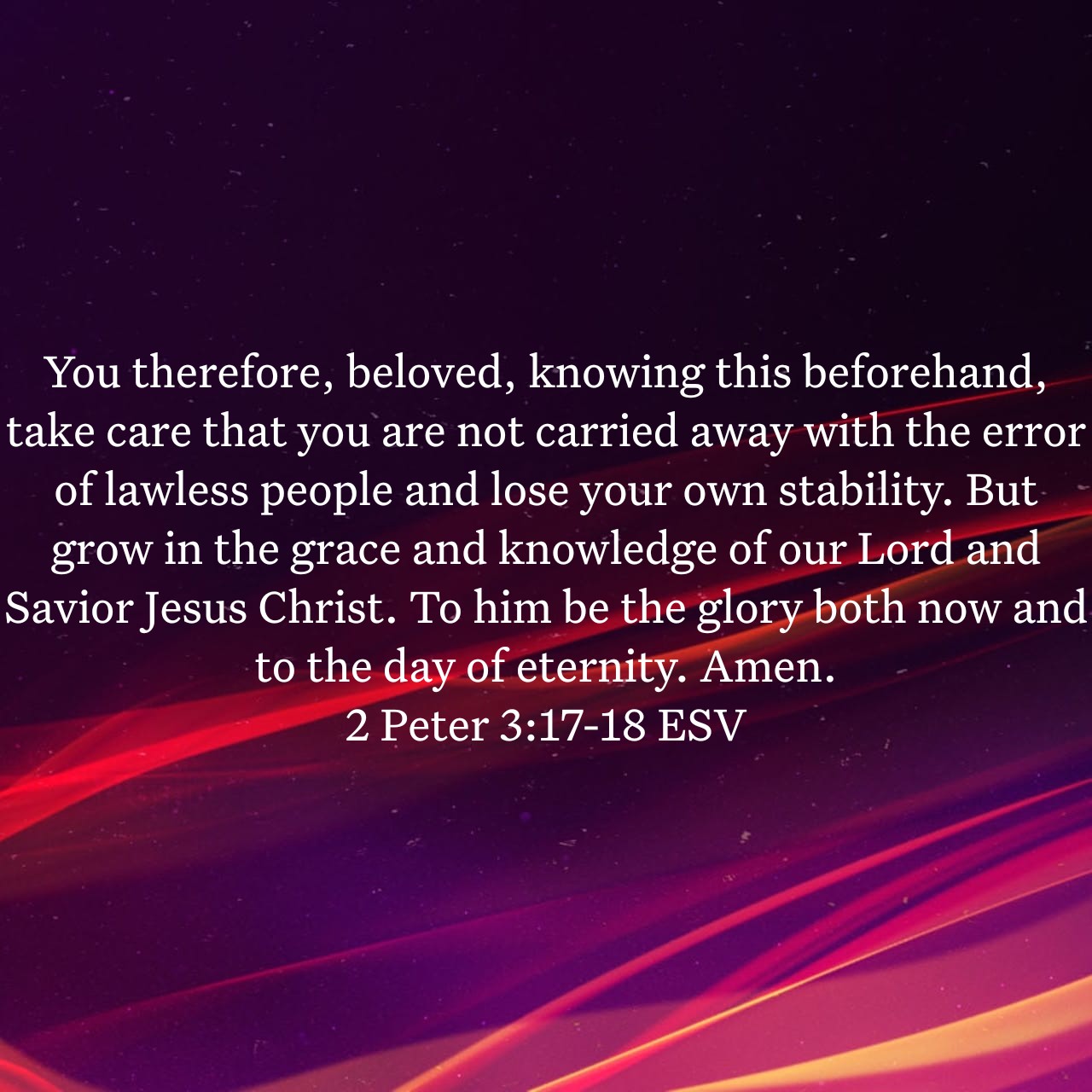Devotional 9 October 2025

Peter ends his letters as he began them—with a call to steadfast faith and growing holiness. His final warning reminds us that false teachers will always tempt believers to drift from the truth. Paul gives the same caution when he says that we should “no longer be children, tossed to and fro by the waves and carried about by every wind of doctrine” (Ephesians 4:14). Stability in Christ is not automatic; it is cultivated through continual attention to His Word. We are to be “rooted and built up in him and established in the faith” (Colossians 2:6-7).
Being a Christian, then, is not a momentary decision but a lifelong transformation. Salvation begins with new birth (John 3:3), yet that birth leads into a life of sanctification—a life of salvation. “Work out your own salvation with fear and trembling,” Paul writes, “for it is God who works in you, both to will and to work for his good pleasure” (Philippians 2:12-13). The Spirit not only gives us faith but teaches us to live it daily.
Peter urges us to grow in both grace and knowledge. Grace without knowledge can drift into sentimentality; knowledge without grace hardens into pride. The two grow together in those who “abide” in Christ (John 15:4-5). Proverbs 9:10 says, “The fear of the Lord is the beginning of wisdom,” and Hebrews 11:6 adds that “without faith it is impossible to please him.” Faith is not blind—it sees through the light of revelation and obeys that light. James ties belief to obedience: “Show me your faith apart from your works, and I will show you my faith by my works” (James 2:18).
This growth is grounded in the reality that Christ came in the flesh (John 1:14) to redeem both the physical and the spiritual. False teachers often spiritualize sin or deny judgment (2 Peter 2:1-3), but the gospel redeems the whole person. Jesus’ resurrection proves that God’s purpose is not escape from creation but its renewal (Romans 8:21-23). Therefore, we glorify God not by withdrawing from the world but by living faithfully within it—doing all to the glory of God (1 Corinthians 10:31).
Peter’s final “Amen” anchors our lives in worship: “To him be glory both now and to the day of eternity.” The Christian life is lived between those two moments—now and eternity. Until that day, we take care not to be carried away, but to grow, that Christ may be seen in us, to the praise of His glory (Ephesians 1:12).